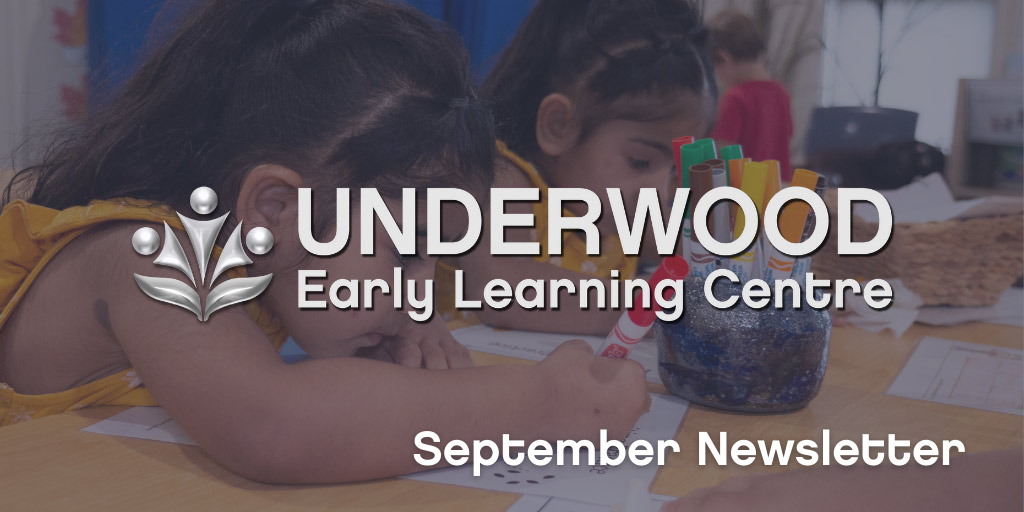Hello to our wonderful Underwood Early Learning Centre families!
Saftey
This is a matter of safety that we all must ensure is happening every day. If you open a door or gate, please only let your child go through. Close the door/gate firmly behind you make sure the latch is secure, so no other children exit the yard/room. Thank you for your help with this.
Grasshopper Soccer
Hey Dee Ho Music
The Benefits of Nature Play
While parents are desperate to get their children away from screens, experts are encouraging parents to see past the playground, with its queue by the swings and fights for whose turn it is to slide. Instead, they are promoting the lifelong benefits of playing in nature.
“There is a global movement looking to have more outdoor nature play, particularly in the early years,” says Associate Professor Janet Dyment from the School of Education at the University of Tasmania.
“There are a lot of people who worry about children not having access to natural spaces.”
She explains that children playing in the playground, instead of in nature, miss out on creative, imaginative play that is open-ended and unstructured.
“Nature play is when children are provided with the opportunity to engage in unstructured play activities in outdoor settings where natural elements feature, such as logs, rocks and water, as opposed to conventional manufactured play equipment,” says Dr Dyment.
It is when children create their own play using natural features.
Dr Dyment says that there are potential barriers around children being allowed to engage in nature play.
“A lot of the barriers are around this fear that children might get hurt more in nature play, for example from bees or falling from the log or rocks or tripping,” she says.
“Increasingly, the argument is being made that the risks of not allowing nature play are actually greater than the risks from the potential minor injuries from nature play.
“Another barrier is this culture of helicopter parenting, where a lot of parents just don’t want their children to have free play in the bush.
“To add to all of that, parents are also busier. So, children are being enrolled in more structured activities like ballet, or swimming, or piano.”
As a result, that opportunity for unstructured, free play in nature can be quite compromised.
Dr Dyment adds that some children don’t know how to play in nature, and need time and space to learn.
“It’s about getting your children to these spaces, getting them in the right clothes for this type of play, spending a lot of time in these places and ultimately, trusting your children to play in nature,” she says.






